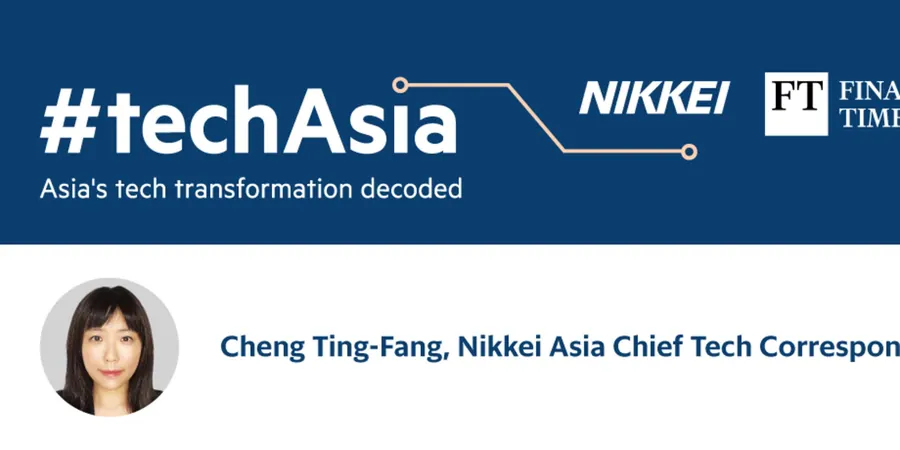
Apple's Ambitious AI Server Plans and TSMC's Cutting-Edge Technology
2024-11-07
Author: Arjun
Apple's Data Center Aspirations
In a bold move, Apple is looking to create its own data center servers, seeking collaboration from its key supplier, Foxconn, the largest iPhone assembler globally. While Apple has experience in consumer electronics, its expertise in server production is limited compared to industry giants like HP and Google. This partnership aims to leverage Foxconn’s strengths, particularly as it leads the market in AI data center server manufacturing.
With the rollout of Apple Intelligence—an AI platform enhancing the demand for the latest iPhone models—Apple's foray into server technology comes at a critical time. Reports indicate that the tech giant plans to establish its server production facility in Hsinchu, Taiwan, the same city where Foxconn manufactures servers for Nvidia. However, the competition for space and resources is stiff due to Nvidia's soaring product demand.
Shifting Markets in Indonesia
Meanwhile, in a strategic move, Indonesia's new president has made it clear that foreign tech firms such as Apple and Google must invest locally or risk losing access to one of Southeast Asia's largest markets. The recent bans on the sale of the iPhone 16 and Google Pixel devices underscore this policy shift, as both companies were unable to comply with local manufacturing regulations.
Analysts caution that this aggressive approach could alienate foreign investors, particularly as neighboring countries like Vietnam and Malaysia adopt more welcoming stances. As Indonesia boasts a young, tech-savvy population, it represents a significant growth opportunity that is at risk of being squandered.
Rising Costs of Innovation
Apple's continuous push for innovation translates into increased production costs. A recent teardown revealed that the materials for the new iPhone 16 Pro cost approximately $568—up from previous models—largely due to the integration of advanced AI capabilities. This flagship device retails for $999, highlighting the premium users pay for cutting-edge technology.
In contrast, Google's Pixel 9 Pro saw a decrease in component costs over time, indicating varying approaches to development and production within the tech landscape. Notably, Apple’s most expensive component is its A18 Pro core processor, manufactured using TSMC's advanced 3-nanometer process.
TSMC’s Technological Leap
As for TSMC, the company is poised to enhance its semiconductor production capabilities significantly with the arrival of state-of-the-art high numerical aperture extreme ultraviolet (high NA EUV) lithography machines from ASML. Priced at around $350 million each, these machines, which can produce nearly three times the number of transistors compared to standard models, mark a major technological advancement in chip manufacturing.
TSMC has been at the forefront of adopting EUV technology—having integrated it into its processes since 2019—outpacing competitors like Intel, which recently began implementing similar techniques. Although TSMC plans to initially use these high NA EUV machines for research, mass production is anticipated to commence after 2030.
Conclusion: A Saga of Innovation and Competition
The interplay between Apple’s drive for AI integration and TSMC’s commitment to revolutionary chip technology exemplifies how the tech industry continually evolves through competition and innovation. As we witness these colossal players navigate challenges and opportunities, it’s clear that the future of technology relies heavily on strategic collaborations and investments—particularly in a climate shaped by geopolitical tensions and rapid market changes.
Stay tuned for more insights into the rapidly evolving tech landscape, where giant firms are constantly jockeying for position in the global market.


 Brasil (PT)
Brasil (PT)
 Canada (EN)
Canada (EN)
 Chile (ES)
Chile (ES)
 España (ES)
España (ES)
 France (FR)
France (FR)
 Hong Kong (EN)
Hong Kong (EN)
 Italia (IT)
Italia (IT)
 日本 (JA)
日本 (JA)
 Magyarország (HU)
Magyarország (HU)
 Norge (NO)
Norge (NO)
 Polska (PL)
Polska (PL)
 Schweiz (DE)
Schweiz (DE)
 Singapore (EN)
Singapore (EN)
 Sverige (SV)
Sverige (SV)
 Suomi (FI)
Suomi (FI)
 Türkiye (TR)
Türkiye (TR)